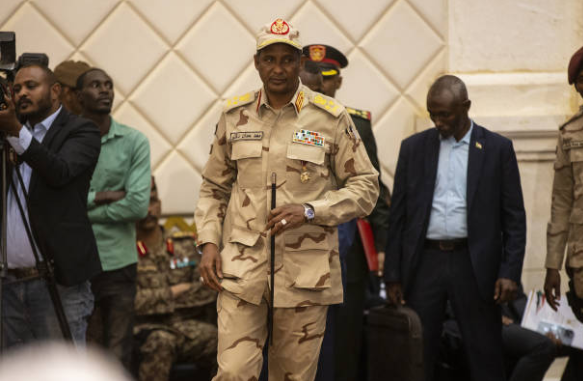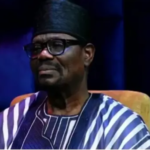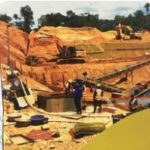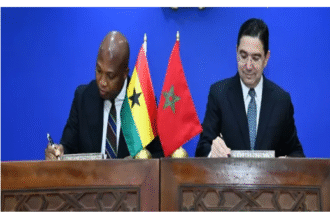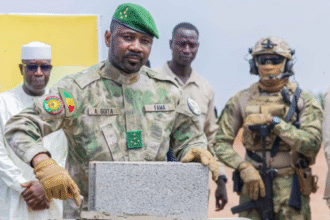By Mohammed Ghani
Khartoum, Sudan – In a move that threatens to further destabilize the war-torn nation, the leader of Sudan’s paramilitary Rapid Support Forces (RSF), Mohamed Hamdan Daglo, has declared the establishment of a rival government, two years after the eruption of a brutal civil war. The announcement, made on Tuesday, marks a significant escalation in the conflict, which has already triggered the world’s worst humanitarian crisis, leaving tens of thousands dead and 13 million displaced.
The war, which began on April 15, 2023, pits the regular army, led by Abdel Fattah al-Burhan, against the RSF, headed by Daglo, his former deputy. Despite international calls for a ceasefire and negotiations, fighting continues to rage across the country, exacerbating an already dire humanitarian situation.
“On this anniversary, we proudly declare the establishment of the Government of Peace and Unity, a broad coalition that reflects the true face of Sudan,” Daglo stated in a message posted on Telegram. The move follows the signing of a charter in Kenya in late February, where the RSF and its allies declared their intention to form a “government of peace and unity” in areas under their control.
Daglo further announced that the paramilitaries, along with “civil and political forces,” have signed a transitional constitution, which he described as a “road map for a new Sudan.” The constitution proposes a 15-member presidential council “representing all regions, symbolizing our voluntary unity.”
The declaration of a rival government is likely to complicate efforts to find a peaceful resolution to the conflict and raises concerns about the potential for further fragmentation of the country. The already stretched humanitarian aid network faces increased challenges in reaching those in need amid escalating violence and political instability.
International organizations and governments have condemned the ongoing violence and called for an immediate end to the fighting. The United Nations has warned that Sudan is on the brink of famine, with millions facing acute food insecurity.
The establishment of a rival government by the RSF adds a new layer of complexity to the already intractable conflict, potentially prolonging the suffering of the Sudanese people and jeopardizing the country’s future stability. The international community faces the daunting task of navigating this increasingly volatile situation to ensure humanitarian access and facilitate a genuine and inclusive political process that addresses the root causes of the conflict.


